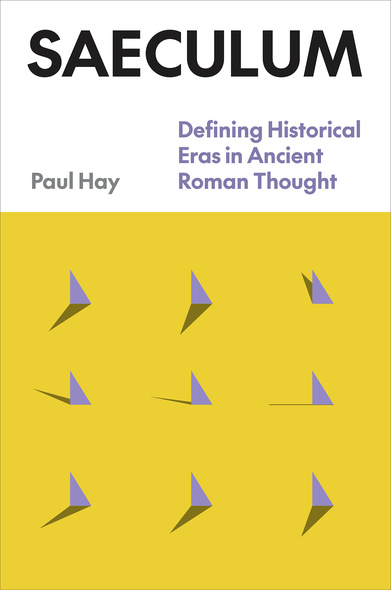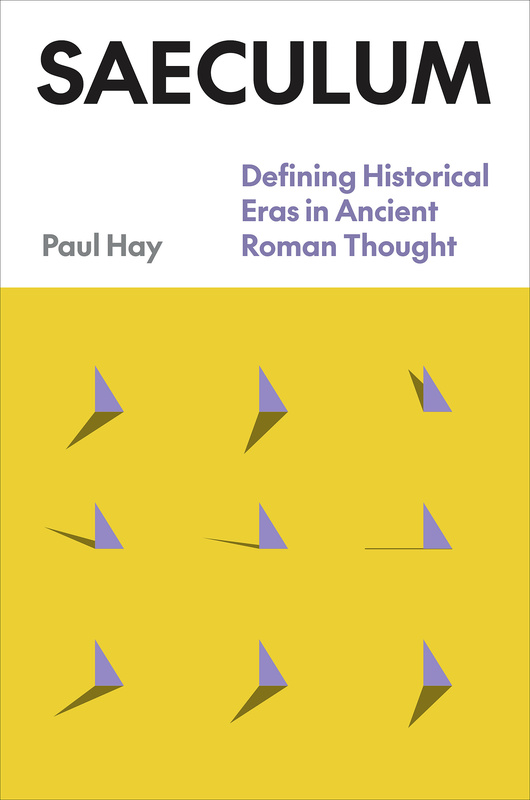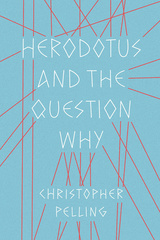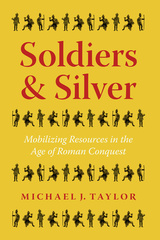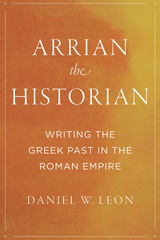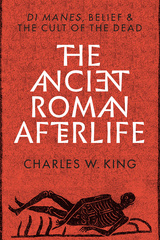How the notion of unique eras influenced the Roman view of time and the narration of history from various perspectives.
The Victorian Era. The Age of Enlightenment. The post-9/11 years. We are accustomed to demarcating history, fencing off one period from the next. But societies have not always operated in this way. Paul Hay returns to Rome in the first century BCE to glimpse the beginnings of periodization as it is still commonly practiced, exploring how the ancient Romans developed a novel sense of time and used it to construct their views of the past and of the possibilities of the future.
It was the Roman general Sulla who first sought to portray himself as the inaugurator of a new age of prosperity, and through him Romans adopted the Etruscan term saeculum to refer to a unique era of history. Romans went on to deepen their investment in periodization by linking notions of time to moments of catastrophe, allowing them to conceptualize their own epoch and its conclusion, as in the literature of Vergil and Horace. Periodization further introduced the idea of specific agents of change into Roman thought—agents that were foundational to narratives of progress and decline. An eye-opening account, Saeculum describes nothing less than an intellectual and cognitive revolution, that fundamentally reorganized the meanings of history and time.
There is much more in the book that cannot be covered in this review . . . It is well written with a clear argument that temporal periodisation mattered to the Romans in the first century BCE, prefiguring the ‘Augustan Age’ (on which there is much discussion) . . . The book is worth reading to open your mind to the concept of the Romans taking action with a view to a future that would last beyond their own lifetime.
Saeculum covers a wealth of passages and themes, drawing on that is impressively wide-ranging in time and medium… In one of the most original and suggestive parts of the book, Hay uncovers how Agrippa used his renovation of Rome’s sewers to associate himself with the culture hero Hercules mucking out the stables of Augeas…a well-produced volume.
The importance of the topic, the scope, and the richness of the argument add up to an exciting book in which Paul Hay articulates a novel perspective on a Roman idea of time: time divided into 'ages.' In Saeculum, Hay offers convincing interpretations of evidence and fascinating combinations of ancient materials—archaeological, literary, and documentary—under the sign of 'saecularity'.
Squarely and happily situated between history and literature, this book unpacks our assumptions about the all too handy labels for periods of time that circumscribe intellectual history. By exploring the concept of periodization as practiced by Roman authors, Paul Hay forces a reconsideration of temporality in the literature and politics of the turbulent first century BCE. The results of this study are far-reaching and not to be ignored. Embedded in the saecular discourse that Hay identifies are tropes whose familiarity deliberately obscures the claims to power at their core.
Saeculum offers an innovative and valuable study of an important aspect of Roman conceptualizations of time. It focuses a new level of attention on a specific discursive phenomenon, namely, the origins and development of Roman ideas of historical periodization during the first century BCE. The individual case studies and specific textual material surveyed exhibit remarkable variety and range, and the underlying question is central for our understanding of the intellectual and cultural history of the late republic and the early Augustan period.
Paul Hay is a visiting assistant professor in Classics at Hampden-Sydney College. He has published articles in Classical Journal, New England Classical Journal, and Syllecta Classica.
- Acknowledgments
- Introduction: A New Order of the Ages
- 1. Omen History: Sulla and the Etruscans on Periodization
- 2. Eternal Returns: Cataclysmic Destruction in Greek and Roman Thought
- 3. Inflection Points: Progress and Decline Narratives with Periodization
- 4. Beyond the Metallic Ages: Technical Histories and Culture Heroes
- 5. Acting Your Age: Periodization in Roman Politics after Sulla
- 6. Pyramids and Fish Wrappers: Roman Literary Periodization
- Conclusion: Spaces after Periods
- Notes
- Bibliography
- Index Locorum
- General Index

